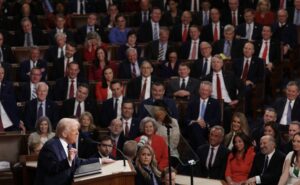The U.S. travel and tourism industry is facing a steep decline, with potential revenue losses estimated at up to $90 billion, as global backlash against the Trump administration’s trade policies and rhetoric intensifies.
The downturn is being driven in large part by declining travel from key U.S. allies—particularly Canada, the United Kingdom, and Germany—traditionally among the country’s most reliable sources of inbound tourism. These nations have responded to escalating tariffs and controversial statements from President Donald Trump with reduced travel and widespread consumer boycotts of American products.
Canada has seen the sharpest drop in tourism following Trump’s imposition of trade restrictions and his provocative suggestion that the country could become the “51st state.” According to U.S. Customs and Border Protection data, travel from Canada fell 12.5% year-over-year in February and declined further by 18% in March, as reported by NBC News.
Western Europe, another major tourism contributor, has also pulled back significantly. The U.S. Commerce Department’s National Travel and Tourism Office reported a 12% drop in visitors from the region in March—one of the steepest declines outside the pandemic era. Travel from the U.K. and Germany was down as much as 29% during the same period.
“Multiple data sources are pointing at a slowdown—and there are lots of anecdotes that suggest an even more severe downturn,” said Jan Freitag, senior vice president of lodging insights at STR Global and national director of hospitality analytics at CoStar Group.
Much of the decline has been linked to President Trump’s tariff-heavy approach to international trade. His administration has imposed duties on imported steel, aluminum, and automobiles, with European goods currently facing a 10% tariff. Although a second wave of tariffs on EU nations has been temporarily paused, tensions remain high.
While Canada and Mexico have been largely exempted from a 25% tariff on other imports, negative sentiment toward the U.S. has still deepened, fueling calls for travel boycotts and contributing to a broader economic ripple effect.
Industry analysts warn that if the trend continues, the U.S. tourism sector—once a steady engine of economic growth—could suffer long-term damage, with repercussions for jobs, hospitality, and local economies across the country.



























